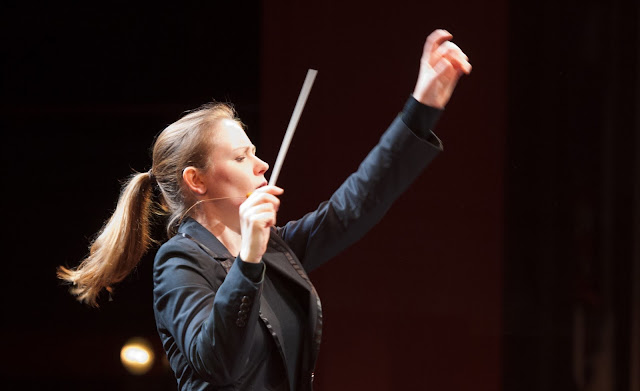On Site Opera and the Crypt Sessions unearth The Tell-Tale Heart.
by Paul J. Pelkonen
There's nothing scarier than Edgar Allen Poe.
The writer and poet, who grew up in the Bronx and called New York home for much of his life is responsible for setting the template for the modern horror story, for inventing the detective tale, and for using simple words to give nightmares to millions of readers, this writer included. You can keep your tentacles, your chest-bursting aliens, your psychopaths wielding baseball bats bound with barbed wire: Poe's stories cut right to the heart of what terrifies us, our own inner demons and darkest moments laid bare for all to see.
by Paul J. Pelkonen
 |
| Hanging on a heartbeat: Elizabeth Pojanowski performs The Tell-Tale Heart by Gregg Kallor (center) with cellist Joshua Roman. Photo by Andrew Ousley. |
The writer and poet, who grew up in the Bronx and called New York home for much of his life is responsible for setting the template for the modern horror story, for inventing the detective tale, and for using simple words to give nightmares to millions of readers, this writer included. You can keep your tentacles, your chest-bursting aliens, your psychopaths wielding baseball bats bound with barbed wire: Poe's stories cut right to the heart of what terrifies us, our own inner demons and darkest moments laid bare for all to see.
































